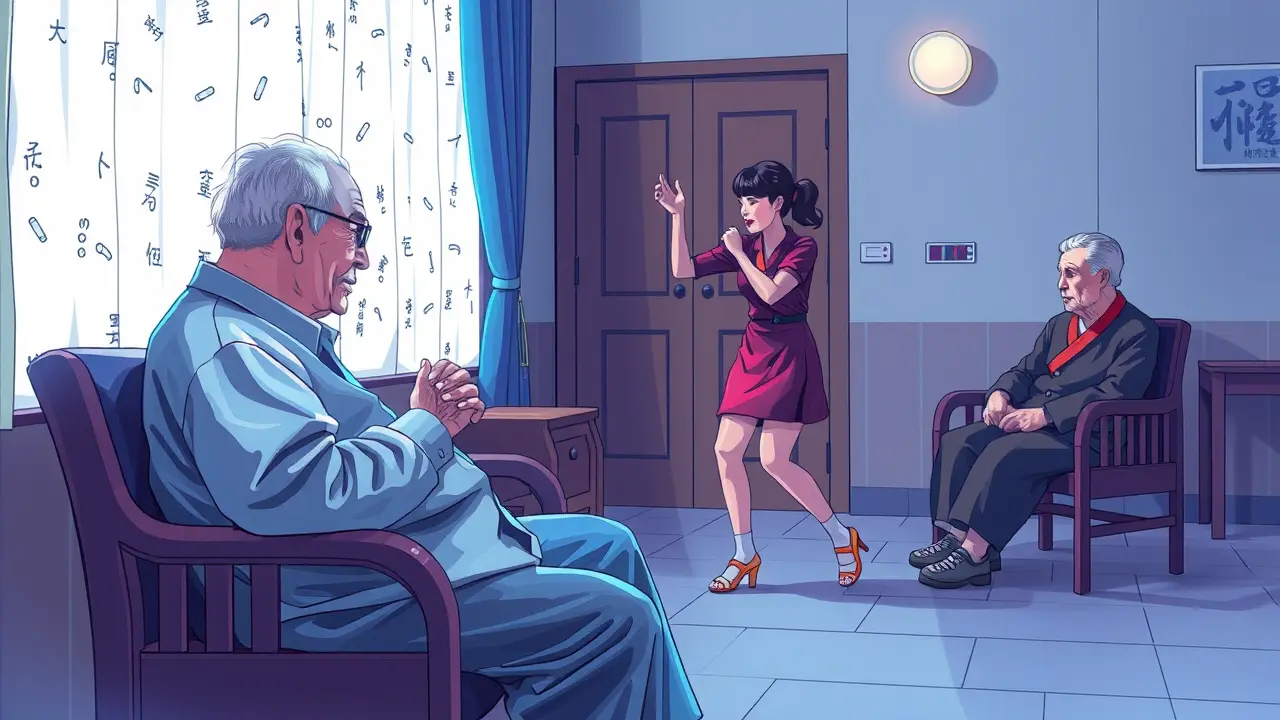Nursing Home Criticized for Inappropriate Medication Dance
The video, shared on September 24th from a verified social media account for a nursing home in Anyang, Henan province, presented a scene that felt both jarring and deeply revealing of a broader societal tension. It showed a senior staff member, a woman in a notably short miniskirt, performing a provocative dance directly in front of a seated elderly man, a resident whose expression was a complex tapestry of bemusement, confusion, and perhaps a flicker of discomfort—a silent story in itself.The caption, ‘Our director is doing whatever it takes…’ to encourage medication adherence, attempted to frame the act as one of desperate, albeit misguided, dedication, but the public outrage that swiftly followed spoke to a far more profound disconnect. When I think about the daily lives within such facilities, I’m drawn to the psychology of care, the unspoken contract of dignity between the caregiver and the cared-for.The elderly residents in that room, individuals who have lived through decades of China’s immense transformation, from collective austerity to rampant consumerism, were suddenly confronted with a spectacle that belongs to a completely different cultural lexicon, one of viral internet challenges and performative social media engagement. This wasn’t merely an inappropriate act; it was a collision of worlds, a failure to see the person behind the patient.I recall conversations with sociologists who talk about the ‘infantilization’ of the elderly in institutional settings, where their autonomy is stripped away, and they are treated as passive recipients of care, or in this bizarre case, as an audience for a stunt designed for clicks rather than compassion. The director, in her miniskirt, was not just dancing; she was inadvertently highlighting the power imbalance, turning a moment of medical necessity into a theatrical performance where the residents were the unwitting extras.What does it say about our metrics for success in caregiving when ‘whatever it takes’ veers into the territory of humiliation rather than holistic, respectful engagement? The backlash, spreading across Chinese social media platforms, wasn’t simply prudishness; it was a collective wince at the erosion of *liăo* (respect for the elderly), a cornerstone of Confucian values that feels increasingly fragile in the modern pace. This incident forces us to look beyond the single video and ask harder questions about the training, oversight, and emotional intelligence of those we entrust with our most vulnerable.Are staff equipped to handle the complex psychological needs of the elderly, or are they simply following procedural checklists? The pursuit of ‘innovation’ in care, often driven by a desire to appear modern or to boost morale, can sometimes miss the mark so profoundly because it forgets to ask the residents what truly brings them comfort or joy. Perhaps a simple, respectful conversation, a shared memory, or a genuine moment of connection would have been a more potent encouragement for taking medicine than a dance that reduced them to spectators in their own home.The consequences for the nursing home will likely be regulatory scrutiny and a stained reputation, but the deeper consequence is the reinforcement of a fear many children hold for their aging parents: that in a facility, they might be safe physically but neglected emotionally, their dignity secondary to a social media strategy. This story is a small, sad anecdote in the grand scheme of things, but it echoes a universal human concern—the desire to be seen, heard, and treated with inherent respect, regardless of age or infirmity. The real medicine needed here isn’t just the pills in a cup, but a heavy dose of empathy and a return to the fundamental principles of compassionate, person-centered care.
It’s quiet here...Start the conversation by leaving the first comment.
© 2025 Outpoll Service LTD. All rights reserved.
